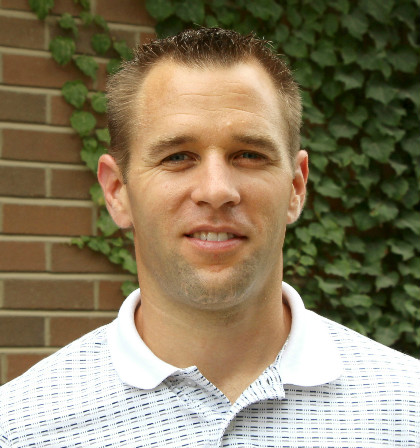Breadcrumbs
In Profile: Daniel Moore
 Healthy living advocates often use the expression 'exercise is medicine.' Daniel Moore, an assistant professor with the University of Toronto’s Faculty of Kinesiology & Physical Education, likes to add that the right nutrition helps to make exercise even better medicine.
Healthy living advocates often use the expression 'exercise is medicine.' Daniel Moore, an assistant professor with the University of Toronto’s Faculty of Kinesiology & Physical Education, likes to add that the right nutrition helps to make exercise even better medicine.
“Our faculty members have a lot of expertise in exercise, be it preparing guidelines for sports sciences bodies, helping to develop physical activity curricula for Ontario’s schools, or understanding the health benefits of activity,” says Moore. “But our Faculty does not have the same level of expertise in nutrition, and that is why I am excited about the opportunity to align my research in children with Lawson Centre scientists.”
Moore’s research focuses on the interplay between exercise and nutrition across different population groups. He has previously studied how different nutrients — particularly proteins — help young adults’ muscles recover after exercise and older muscles stay healthy with age.
“In some of my previous research, we studied how the amount, type and timing of dietary protein ingestion all influenced the efficiency by which muscle recovered after exercise in the context of sports training,” says Moore. “From this work I realized that there is a need to similarly understand the nutritional requirements in active kids and adolescents — those who have more daily exercise in comparison to average children because they are involved in hockey, soccer or other sports. Unfortunately, we know relatively little in this area.”
In children, Moore concentrates on the relationship between nutrition and exercise, but also how being active can aid nutrition in improving overall growth and development.
“We look at metabolism at the whole body level — not just muscles — in children, which we believe to be a better reflection of the potential outcomes of exercise and nutrition interventions since kids’ bodies grow very quickly. We hope to leverage this information to guide nutritional best practices in active children and adolescents to enhance their growth and development.”
Moore emphasizes that while his work has a large focus on kids involved in sports, the findings are relevant for the entire population of children and adolescents.
“The Lawson Centre also allows me to access the clinicians at the forefront of work with children affected by disease, which provides an opportunity to leverage new knowledge in healthy kids to clinical populations who may obtain an even greater benefit,” says Moore.
Previously, Moore was part of a research and development team at a major research centre in Europe, for a large international foods producer. “During this time I realized there are huge knowledge gaps in identifying potential synergies between active living and childhood nutrition, especially in the context of protein metabolism,” says Moore. “That motivated me to develop new evidence to support nutrition recommendations and solutions.”
Moore’s research achievements have been recognized through a Young Investigator Award by the American Society for Nutrition, as well as a Canada Foundation for Innovation award for his work on high-performance muscle metabolism.
